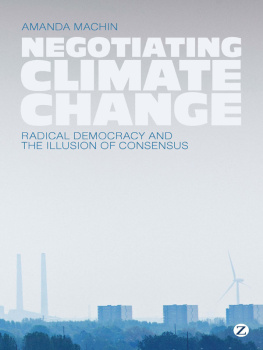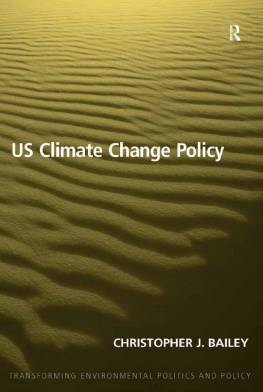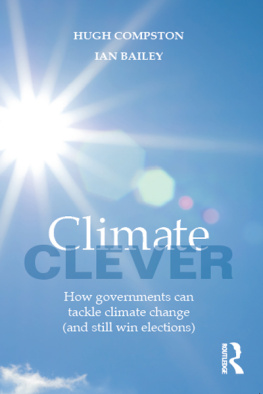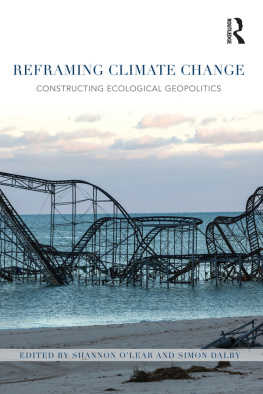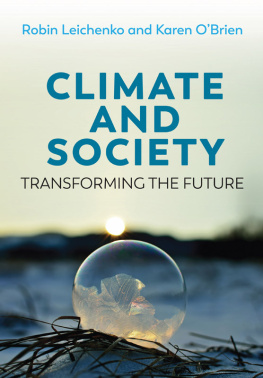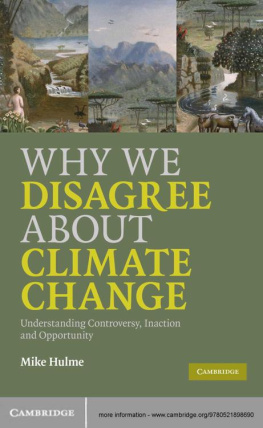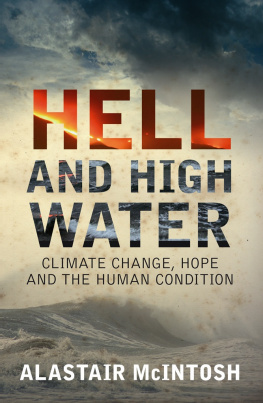Negotiating Climate Change: Radical Democracy and the Illusion of Consensus was first published in 2013 by Zed Books Ltd, 7 Cynthia Street, London N1 9JF, UK and Room 400, 175 Fifth Avenue, New York, NY 10010, USA
This ebook edition was first published in 2013
www.zedbooks.co.uk
Copyright Amanda Machin 2013
The right of Amanda Machin to be identified as the author of this work has been asserted by her in accordance with the Copyright, Designs and Patents Act, 1988
Designed and typeset in Goudy and Eurostile by Kate Kirkwood
Index by John Barker
Cover designed by www.kikamiller.com
All rights reserved. No part of this publication may be reproduced, stored in a retrieval system or transmitted in any form or by any means, electronic, mechanical, photocopying or otherwise, without the prior permission of Zed Books Ltd.
A catalogue record for this book is available from the British Library
Library of Congress Cataloging in Publication Data available
ISBN 978 1 78032 400 5
Acknowledgements
The research from which this book arose was carried out while I held a post-doctoral research position with the Governance and Sustainability programme at the University of Westminster. I am very grateful to Simon Joss for his support and leadership of this programme. I am also indebted to the colleagues and friends who took the time and trouble to read through and comment on draft chapters and previous versions of the arguments found in this book: Dan Greenwood, Paulina Tambakaki, Bronwyn Hayward, Maria Fotou and Chantal Mouffe. I am also grateful to Tamsine ORiordan and Kim Walker for their invaluable editorial guidance and to two anonymous reviewers.
Writing a book having recently had a baby has been a rather daunting task, and I wholeheartedly thank my family who granted me the time and space in which to write and forgave me my fretting and fussing. Thank you to Brian, Tricia, Pat and Les, and most of all, of course, to Paul.
Introduction
Where are the Politics of Climate Change?
Climate change, it has been said, is the greatest challenge of our time. This is true in two senses. It appears, first, as a global issue, rearing up as a cataclysmic rupture facing the entire planet and thus shaping the existence of present and future generations for decades to come. The second challenge is that it seems to be a huge problem with no straightforward and forthcoming solution. It is thus an apparition that looms and lurks in our everyday lives, a shadow that falls across our tomorrows and haunts our consciences. This shadow is all the more disturbing because we do not seem to be able to work out a strategy for how it might be banished.
Might this apparition be rendered less fearsome if we notice that climate change is the silhouette of our own self-image that it is indeed our own shadow? Might it help if we turned to look hard at ourselves and our ways of life and our values to see why we have created this thing and what it reveals about us? Until we do so, I suggest, we will not be able to dispel the all too real fear and concern that climate change is causing us.
This book, then, attempts to look at climate change by looking at ourselves. It suggests that the way we envisage ourselves as individuals and as collectivities affects our ability to respond to the varied impact and meaning of climate change. Perhaps by understanding ourselves differently we might be able to work out how to tackle the greatest challenge of our time. Perhaps a transformed self-awareness may help to render it not such an impossible challenge after all.
I shall argue that dominant approaches to climate change do not help us approach this multifaceted issue in any useful way; rather, they only reaffirm our predicaments. I attempt here to point to the flaws
The myth of consensus, I suggest, is perhaps the biggest problem facing climate change politics today. Consensus both scientific and political is supposed to underpin decisive action. But such consensus is not forthcoming. Scientists may be able to predict what might happen when atmospheric temperatures rise, although they cannot forecast with any accuracy the how and when and to whom, nor can they tell us what to do with this information. Shifting political decisions onto science results in a depoliticisation of climate change that dampens democratic debate and stifles political engagement. Assuming political consensus as a horizon marginalises those who dissent and undermines the role of disagreement in politics. Disagreement, I suggest, should be celebrated and encouraged in a democratic forum. For only through disagreement can climate change politics be invigorated and produce a clear decision, although this decision is never final and full. Such a radical democratic approach, I suggest, has more chance of producing the collective action to tackle climate change than current dominant approaches.
At present climate change is approached from very different angles that reveal particular self-understandings and desires. Some scour science and technology for a magical solution that allows (some) human beings to continue to live their lives without making any noticeable sacrifices. Yet the potential side-effects of such far-reaching, and sometimes far-fetched, mechanisms must necessarily be heeded the clouds about the silver lining. The search for technology fits into a broader picture of market-based solutions, examines the techno-economic approach and explains that the policies it advocates cannot, by themselves, produce any real structural change; they are often invisible and demand no awareness or engagement of the dangers of climate change by the population (take away the tax or the emissions cap, it seems, and behaviour will revert). These sorts of policies can be criticised for actually affirming the very self-interested behaviour that is at issue. Techno-economic solutions are not strong, deep or long-lasting enough to tackle the problem, but need to be part of a clear and decisive policy framework.
examines the ethical-individual approach, which suggests that it is not the market or technology that proffers the solution but rather an invigoration or reconceptualisation of our ethics. Moral philosophers demand a transformation in fundamental ethical values to produce the massive transformations in human behaviour and attitudes needed to address climate change. This approach, however, again focuses upon individuals and their personal choices. The problem here is the assumption that individuals, acting independently, can agree on how to tackle climate change and will accordingly act harmoniously, without any political policy to coordinate and coerce them. Although climate change is indeed an ethical issue it is not only an ethical issue. An approach that focuses entirely on ethics is hindered by the difficulty that no decisive and collective action is guaranteed by a transformation of individual ethical values.
To underpin a move to a greener society in general, including more climate-friendly lifestyles, it seems that an explicit commitment to action as a collective is needed. The next chapters examine perspectives that crucially regard individuals as citizens. Green republicans argue that a commonly held understanding of the good can unify a community, and thus they promote the existence of a common good which contains a substantive green component. Individuals here are not regarded as self-interested consumers but rather as responsible and virtuous citizens. The problem with green republicanism, however, is that it presupposes an agreement upon the substantive content of the common good and citizenship responsibilities. Who decides the meaning and demands of the common good? Does this approach result in an eco-authoritarianism that dictates the interests, values and actions of a population? What, moreover, of the gender and class identifications that may result in varied understandings of and relationships to climate change? Green republicanism appears to demand an agreement that might well be precluded by pluralism and democratic differences.

